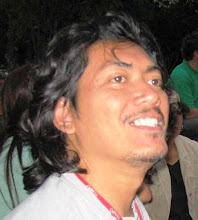
I remember the day president Sukarno died. It was June 21, 1970, and I was in a taxi going from Jakarta's airport into town after completing a tour of the U.S. as a student leader — a trip made possible through a program initiated by Suharto, Sukarno's successor. The streets were quiet and I asked the driver why. He replied in a neutral voice that Sukarno had just passed away.
After the chaos and isolationism of the Sukarno years, my student movement had supported Suharto's vision of stability and economic growth. Nevertheless, I felt a sad sense of passage — and anticlimax — at Sukarno's death. Nobody talked about it, because he had disappeared from public view.
Nobody knew where he was; it was not even clear where he had died, or how long he had been ill. The media never ran stories on him. Sukarno, revolutionary leader, founder of the nation, President for life, just vanished.
The atmosphere was totally different when Suharto died on Jan. 27 from multiple organ failure. For days before his lingering death, people milled around the hospital. Television crews jostled for camera space while news anchors played up the melodrama. It was like opera, with tragedy and comedy served up in equal parts: the tragedy of death, which is final and almost always sad, and the comedy of dignitaries past and present and sundry celebrities falling over themselves for a piece of the global spotlight.
Suharto's story does make for grand opera: a village boy who grows up into an army general, then acquires absolute power in the wake of a mysterious communist coup and military countercoup. Historians say those tumultuous days in the fall of 1965 sparked half a million murders, and that Suharto and his soldiers were responsible.
We students did not know about the killings at the time. If we heard anything bad, we refused to believe it. And if we believed it, we thought it justified. We chose what we thought was freedom against communism. Eventually, many of us changed our stance. I later called for Suharto's dismissal and was jailed for a while, and my TV talk show was banned.
Suharto's New Order was precisely that: if not a police state certainly a policed one, with everything kept in check — political parties, religious (and especially Islamic) groups, activists and dissidents, writers and artists. After Sukarno, there was complete regime change.
There is no sense of regime change with Suharto's death. He had been out of power, and practically out of sight, living quietly in a leafy residential neighborhood in central Jakarta, for nearly 10 years. But he was not a forgotten man — when he should have been. That says much about who he was and what he stood for.
Suharto was the very avatar of the philosophy of economic development first, and political progress later (if at all) — a model of governance that was once the rule in much of Asia. During his nearly 33 years in power, Suharto seemed to have forged a paternalistic pact with the people of Indonesia that went like this: I will build infrastructure, raise income levels, reduce poverty, battle disease and illiteracy and provide stability, and you will let me run the country as my personal fiefdom. Other strongmen have made that same deal, but no one ever implemented it on such a large scale — Indonesia is the world's fourth most populous nation — for so long.
Suharto was not forgotten for another reason: the attempts at political reform since he left power have not produced a tangible improvement in the daily lives of Indonesians. Corruption, cronyism, a lack of transparency and accountability — they are all still around. Indonesia has been reborn as a young democracy, but because Suharto did not establish durable civic institutions, that democracy is messy enough for many Indonesians to pine for his old New Order.
Suharto's eldest daughter, Siti Hardiyanti Rukmana, who was a member of her father's last Cabinet, said after his death: "If he committed mistakes, we hope all are willing to forgive him." But no one has the right to forgive Suharto other than his victims — and God. There needed to be some reckoning for Suharto, not necessarily for the sake of justice or revenge, but because a young democracy like Indonesia needs to have a sense of what is right and what is wrong.
Because Suharto did both good and evil, that distinction has been blurred. His regime is full of buts: yes, there was corruption and abuse of power, but the economy grew — that sort of thing. As a result, Indonesia lacks self-confidence and self-respect. That, more than anything else, is the legacy left by Suharto.*
*With reporting by Wimar Witoelar, once spokesman for former Indonesian President Abdurrahman Wahid, hosts a national radio show. Thursday, Jan. 31, 2008 | (Published: TIME News Magazine | Photo: AP)

please visit wimar's blog for the original unedited version of this essay titled Suharto espaces trial, but Indonesia does not
ReplyDelete